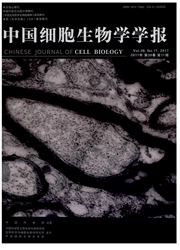

 中文摘要:
中文摘要:
自噬是一种广泛存在于真核细胞中的分解代谢过程,在饥饿、缺氧等应激条件下细胞可以通过自噬途径降解自身组分来维持细胞的内稳态以及物质代谢的平衡,从而使细胞存活。黄体作为哺乳动物卵巢中的暂时性组织结构,对维持卵巢功能及早期妊娠具有非常重要的作用,其主要功能之一是合成孕酮。目前的研究表明,自噬参与了妊娠黄体功能的维持,并促进黄体退化过程中的细胞凋亡。该文对自噬在哺乳动物卵巢黄体功能维持及其退化过程中的作用进行综述,旨在为进一步研究哺乳动物卵巢黄体功能的调控机制提供重要的参考资料。
 英文摘要:
英文摘要:
Autophagy is a catabolic process widely existed in the eukaryocytes. Under starvation or oxidative stress, cells may degradate their components and recycle them via autophage to maintain intracellular homeostasis and metabolic balances for the survival of cells. Corpus luteum is an ephemeral endocrine gland in the mammalian ovary, playing a pivotal role in the maintenance of luteal functions and early pregnancy. The production of progesterone is one core function of corpus luteum in the ovary. Present researches have demonstrated that autophagy is involved in the maintenance of luteal functions during the pregnancy and boost the apoptosis of luteal cells during the regression. Therefore, the contribution of autophagy to the maintenance of luteal functions and the regression of corpus luteum in the mammalian ovary will be reviewed, in order to provide some important references for further investigating the regulatory mechanism of luteal functions in the mammalian ovary.
 同期刊论文项目
同期刊论文项目
 同项目期刊论文
同项目期刊论文
 期刊信息
期刊信息
